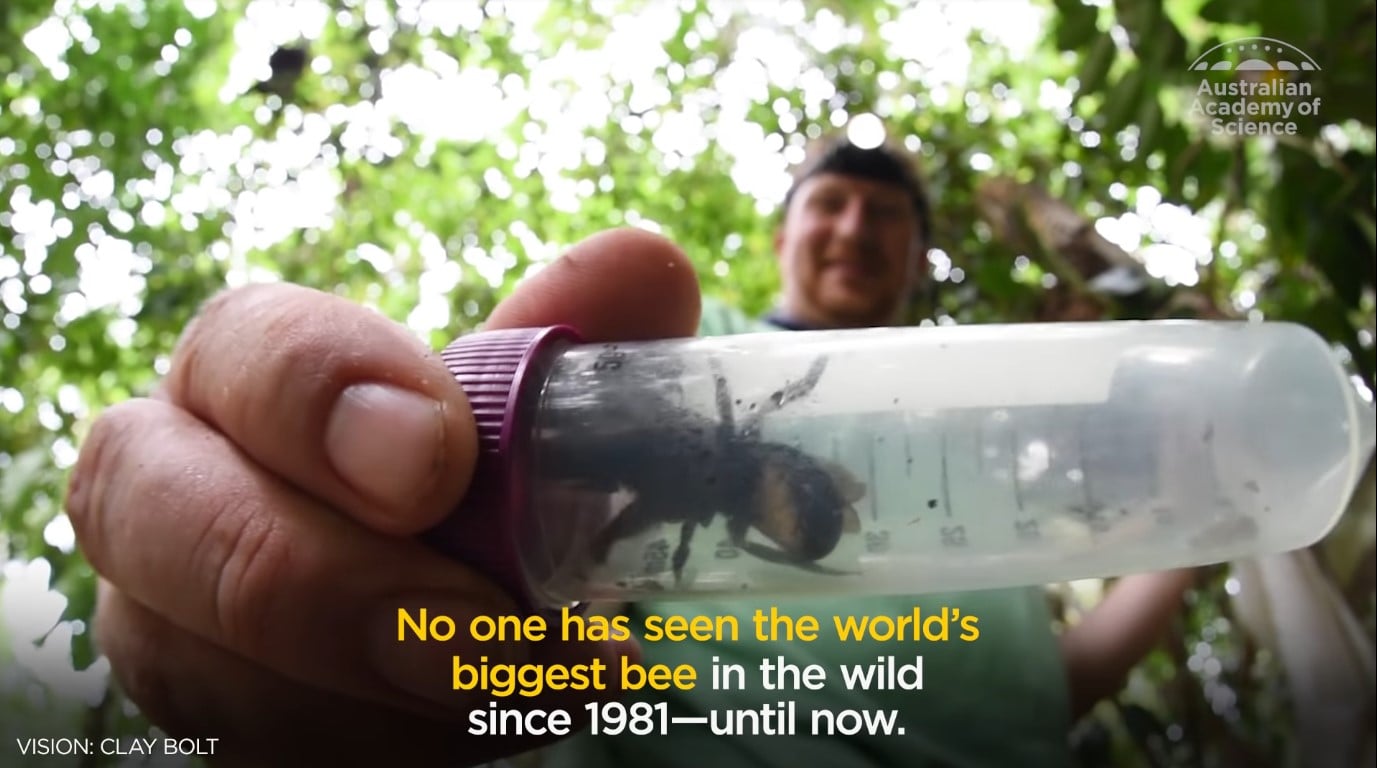The world’s largest bee has been hiding from the eyes of science for decades. The insect was thought to have gone extinct in 1981, however, scientists found a full-grown bee which measures as long as a grown adult’s thumb, proving they still do exist.
A group of wildlife experts, while searching for the bee on an Indonesian island, stumbled upon the mentioned bee. After days of searching, they found a female, which they took photos of and filmed.
The world’s largest bee is also known as Wallace’s giant bee, receiving this name after the British naturalist and explorer Alfred Russel Wallace, who was one of the first people to describe it in his journals in 1858. The Wallace bee was thought to be extinct for decades after being last seen on three Indonesia islands in 1981. However, as the BBC reports, there was a report of seeing the bee last year, after two bee specimens were put up for sale online.
A team of researchers wanted to give it one last try, so they followed the naturalist’s footsteps and embarked on a journey through the Indonesian island to photograph the silent bee.
“It was absolutely breathtaking to see this ‘flying bulldog’ of an insect that we weren’t sure existed anymore, to have real proof right there in front of us in the wild,” natural history photographer, Clay Bolt, who took the first photos and video of the female bee was quoted by BBC News. “To actually see how beautiful and big the species is in life, to hear the sound of its giant wings thrumming as it flew past my head, was just incredible. ”
The discovery of the world’s largest bee hiding in the Indonesian islands known as the North Moluccas gave experts hope that one of the rarest bees still exists rather than heading toward the path of total extinction. Although the bee is pretty rare, it is not listed under any kind of legal protection when it comes to its trade.
Eli Wyman, an entomologist at Princeton University and also a participant of the expedition told BBC News that he hoped that the discovery would lead to additional research in order to have more understanding about the insect, and in that way protect it from total extinction.
There are still groups and communities which work on protecting endangered species. The Global Wildlife Conservation (GWC) launched a global hunt for “lost species,” and also backed the trip for rediscovering the bee.
“By making the bee a world-famous flagship for conservation, we are confident that the species has a brighter future than if we just let it quietly be collected into oblivion,” Robin Moore was quoted by BBC News.





